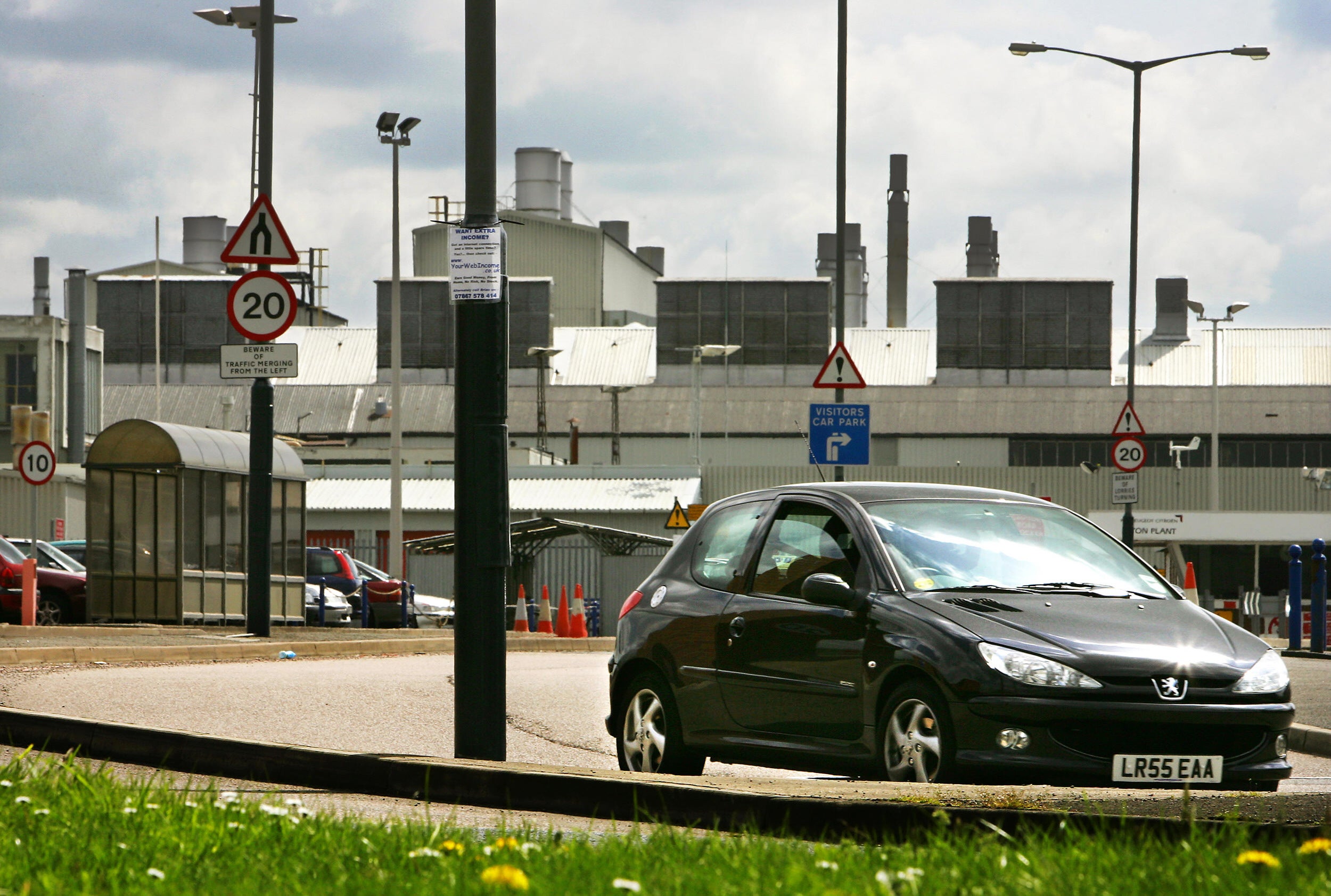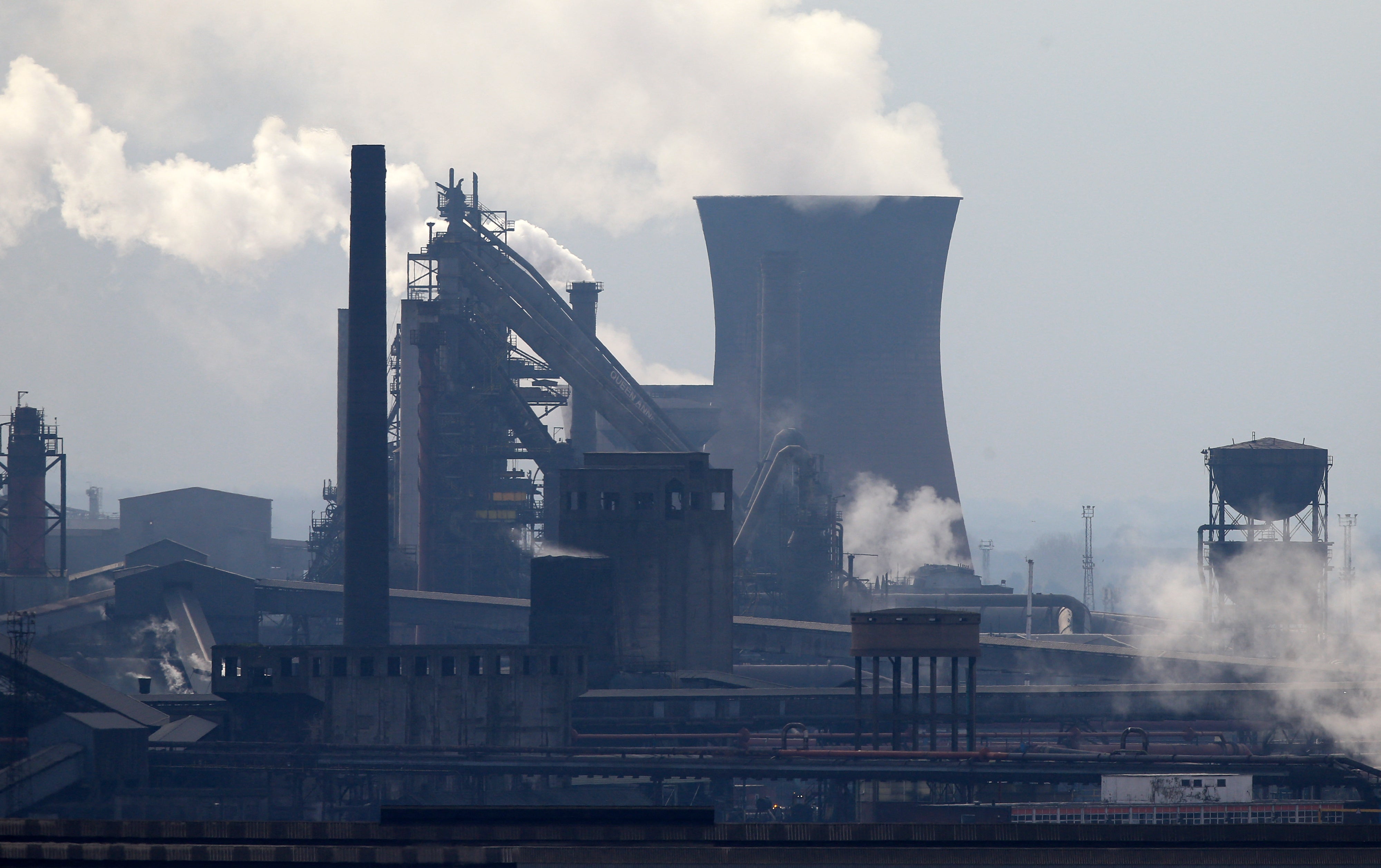US tariffs are set to cause an “uneven storm” across the UK with Coventry expected to be the worst affected, a think tank has warned.
The West Midlands, the home of British car manufacturing, and Wales, which is a significant contributor to British steel, are likely to take the brunt of the economic impact caused by Donald Trump’s escalating trade war, a study by Centre for Cities shows.
The 10 per cent tariff on all imports will see the cost of UK goods rise across the Atlantic, from artisan cheese and beer to cars and machinery.
But the additional 25 per cent tariff on steel and aluminium is set to significantly impact car manufacturing and the British steel industry.
Coventry is the most exposed city, where more than 22 per cent of its total exports are estimated to be goods to the US.
It is closely followed by Derby with 19.9 per cent of its goods exported to the US and Telford at 13.3 per cent, according to 2016 to 2022 data from the Office of National Statistics (ONS).
Overall, 14.3 per cent of exports in Wales are to the US and 15.4 per cent in the West Midlands, Centre for Cities found through analysis of this data.
On the other hand, the least impacted city is York at 2.7 per cent, which is seven times less exposed by tariffs than Coventry.
Edinburgh (2.9 per cent), London (3.2 per cent) and Cardiff (3.7 per cent) all have low exposure to the impact of tariffs.
That is because their economies are more service-oriented, and their goods exports make up a small share of their export industries.
The West Midlands is a major hub for British car manufacturing, with notable brands like Jaguar, Land Rover, and Aston Martin.

British Steel’s headquarters is in Scunthorpe, Lincolnshire, with rolling mills in Teesside and Skinningrove. But Port Talbot in south Wales is home to the largest steel works in the UK.
Gareth Stace, UK Steel director general, argued that US president Donald Trump has taken a “sledgehammer” to free trade with “huge ramifications” for the steel sector.
“Our high-quality products serve key US industries, many of which cannot source these domestically. This is a moment where our countries should work together to tackle global steel overproduction, not to be at loggerheads,” he added.
The government is now considering nationalising British Steel as fears grow that the company’s blast furnaces in Scunthorpe could run out of raw materials within days.
There are fears that without government support, there could be huge job losses.
The motor industry is also warning there could be 25,000 job losses in the UK due to 25 per cent tariffs on automobiles and parts.

Car manufacturer Morgan Motors, based in Malvern, West Midlands, exports about 30 per cent of its products and builds around 650 cars a year. Bosses are concerned the tariffs will impact growth.
“The tariffs are not good news, and we do not welcome them at all. In the short term, it could stop people from purchasing cars,” James Guilbert, head of communications, told The Independent.
“There will be a knock-on impact to the wider supply chain, we buy materials from other suppliers in the Midlands and if they are impacted, we will be too.”
The British Beer and Pub Association (BBPA) pointed out that its £126m trade with the US could be wiped out with a 25 per cent tariff charge on aluminium cans.
CEO Emma McClarkin said: “We urge the government to defend the great British brewing industry and strike a deal which removes these harmful tariffs.
“With the enormous cost of doing business, many British brewers won’t be able to sustain a hit such as this from one of our biggest trading partners."
Morgan Schondelmeir, tax and trade policy manager at BBPA told The Independent: “It will decrease the incentive for smaller breweries to export.
“Although the amount exported is relatively small, this additional 25 per cent tariff on cans is only being applied to beer - not other beverages sold in cans. We are the only beverage being targeted specifically.”
Responding to the latest on tariffs on Wednesday afternoon, doing a trade deal with the US or changing the rates of American tariffs will not be "enough", Sir Keir Starmer said.
Asked by ITV's Peston if the 10 per cent tariff on importing goods to the US would be in place forever, the prime minister replied: "Look, I don't know.
"We are negotiating and we hope to improve the situation, but what I mean by this is that simply thinking that any change in the rates, or any deal is going to be enough, to my mind is wrong, because just as we've done with defence and security, where we've recognised it's a changing world, we've got to step up and act differently.”
Six people dead after helicopter crashes into Hudson River: Latest updates
Ukraine war live: Russian adverts seek to recruit tough men in China for Putin’s war
Democrats take aim at Trump’s ‘market manipulation’: ‘Could be an enormous scandal’
What Tony Blair told Keir Starmer about how to deal with Donald Trump
‘Reason for concern’ emerges in long-running citizen birdwatch scheme





.jpg?w=600)

